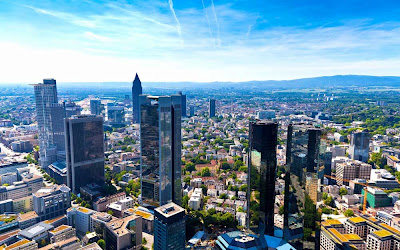Home

Capital: Berlin
Total area: 356,854 km ²
Population: 82 million inhabitants
Currency: the eurozone member since 1999 (€)
Germany is the EU country with the largest population. Its territory extends from the North Sea and Baltic Sea in the north to the Alps in the south and is traversed by some of Europe's longest rivers such as the Rhine, Danube and Elbe.
Germany is a federal republic. The lawmakers at the national level are the Bundestag (Federal Assembly), whose members are elected by universal suffrage for a term of four years and Bundesrat (Federal Council) consists of 69 representatives of the 16 Federal States (Bundesländer).
After World War II, Germany was divided into a Western part, the Federal Republic of Germany, with a democratic regime, and in the eastern part of the Democratic Republic of Germany, with a communist regime. The Berlin Wall became the symbol of this division. Fell in 1989 and Germany was reunited a year later.
German is the language with the largest number of speakers in the European Union. Germany is the third largest world economy, especially in the fields of automobile production, industry, precision mechanics and electronics, and communications, as well as in the chemical and pharmaceutical industries, among many others. Companies have invested heavily in the countries of Central and Eastern Europe that joined the European Union in 2004.
Germany has made a major contribution to European classical music, having been the birthplace of composers such as Johann Sebastian Bach, Ludwig van Beethoven, Johannes Brahms and Richard Wagner. In the field of literature and ideas, Germany has the priceless legacy of Luther, Goethe, Schiller, Nietzsche, Kant, Brecht and Thomas Mann.
Germany is the second largest producer of hops, and the quality of its world famous beer. Also produces wine in the valleys of the rivers Rhine and Moselle.
